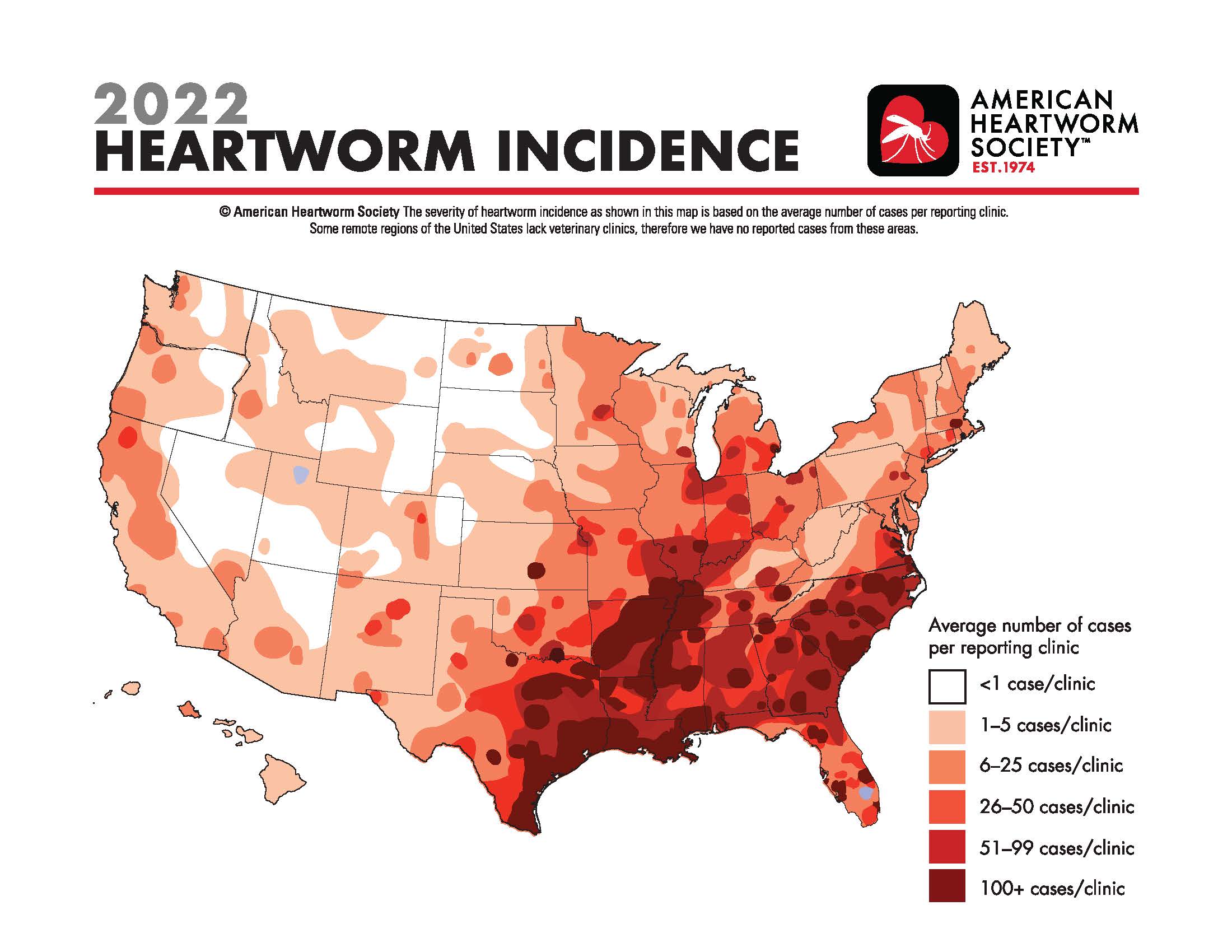Heartworms: is there a risk?
As pet parents, we owe it to our furry family members to keep them safe and healthy. Heartworm disease can be extremely dangerous for pets and is especially common in areas with warm climates such as Tennessee (home of Young-Williams Animal Center). This blog post is intended to educate you on the risks heartworms present, as well as how best to protect your beloved companion. Let’s dive into what you need to know about heartworms so that you can make sure your pup or kitty stays happy and healthy!

Image: Freepik
What are Heartworms and why should you be concerned about them?
It’s not fun to think about your pet becoming ill but learning about heartworms will help you keep your pet safe from this nasty parasite. Heartworms are large worms that form infections in the arteries of dogs and cats, ultimately leading to problems in major organs. Thankfully, it can be easily prevented with monthly doses of prescribed medication, given year-round depending on your location. With a simple schedule and proper support, pet parents can protect their furry family members from an all-too-common yet preventable condition.

Image: Freepik
How common are heartworms in Tennessee?
According to the most recent (2022) American Heartworm Society Incidence Map, Tennessee ranks in the top 10 states for heartworm disease. With pet owners everywhere facing the risk of their pets contracting this disease, it’s important to stay informed on how you can protect your furry friend.

Source: American Heartworm Society
Signs of Heartworm Disease in your pet
Heartworm Disease is a serious, and sometimes potentially fatal, condition in dogs and cats. As a pet parent, it’s important to be aware of the signs of this condition before it becomes advanced. Common signs are coughing, lethargy, reluctance to exercise, weight loss, and sometimes even dark-colored urine. If you notice any of these symptoms in your pet or they appear unwell in any way, we suggest visiting or contacting your local veterinarian for an exam as soon as possible.

Image: Freepik
How to Prevent Heartworm Disease and keep your pet safe
Keeping your pet safe from the threat of heartworm disease is an important part of being a responsible pet parent. Providing year-round preventative medication designed to kill any infection caused by heartworms will reduce the risk substantially. We also recommend that all owners have their pet checked annually for heartworms by their veterinarian. Follow these recommendations and you can help ensure your furry companion remains safe and happy for many years to come.

Image: @FreePik
Heartworm Prevention is more cost-effective than treatment
Keeping your pet safe from heartworm disease isn’t just a matter of peace of mind, it’s also an important cost-saving measure. Treatment for this condition can be expensive – not to mention time consuming, so why not do everything possible to keep your pet safe in the first place? Being informed and proactive is the best way to ensure your furry friend stays healthy.
Which pets should be given heartworm preventatives?
Ensuring the health of our beloved pets is of utmost importance and all pet parents should be aware of the dangers of heartworm disease that can affect both cats and dogs. To prevent this deadly infection, all dogs and cats, including pets that stay indoors, should be given a monthly heartworm preventative from their vet. Heartworms are spread through mosquito bites so even if your furry pal lives indoors, they can still encounter mosquitoes and be at risk – but thankfully you can help protect them with a simple medication! With the right preventative steps, we can keep our pets healthy, happy, and safe.

Image: Freepik
You’ve Got this!
Now that you have a better understanding of heartworms and ways to protect your pet from them, don’t wait. Take steps now to ensure your pet is protected from heartworms today! Speak with your veterinarian about giving monthly medication, and purchasing preventative treatments such as chewable or topical solutions – whatever fits into your routine – so you can keep your furry friend healthy and happy for years to come!
Published April 2023, updated April 2024
 About the Author:
About the Author:
Wyatt Baggett is the Marketing Associate at Young-Williams Animal Center. With over five years of experience working with shelter pets and a passion for animal welfare, he enjoys creating informative content for pet parents. When he’s not working, Wyatt enjoys hanging out with his three rescue dogs, thrifting, and hunting down the best eats around Knoxville.
